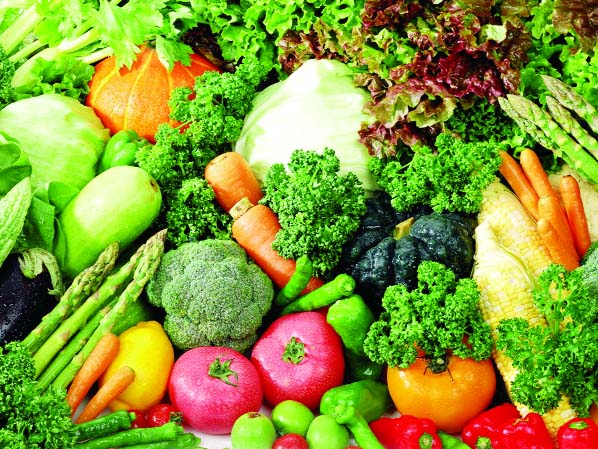
UNB, Dhaka :
Toxic substances are found in vegetables cultivated around industrial belts as the industries are randomly discharging chemicals and toxic substances into open water bodies, according to a health expert.
“Many industries located around Dhaka and in Narsingdi are dumping toxic substances, including lead, mercury chromium and nickel-all are heavy metals-into the water-bodies. So, toxic substances are being found in vegetables cultivated on lands around the industries,” Manzurul Haque Khan, an assistant professor at the National Institute of Preventive and Social Medicine (NIPSOM), told a workshop on Sunday.
WHO-SEARO organised the Media Workshop at CIDRAP Auditorium ahead of the 32nd meeting of Ministers of Health and the sixty-seventh Regional Committee Session of WHO’s South-East Asia Region, beginning here on September 9.
Making his power-point presentation on ‘Environmental Health: Bangladesh Perspective’,
Manzurul Haque said the toxic substances, being found in food and vegetables, is a matter of serious concern when it comes to public health.
About air pollution in Dhaka city, he said Bangladesh earlier introduced lead-free fuel to improve the air quality but the air pollution is on the rise as unfit vehicles have captured roads across the country.
Identifying brick kilns, construction works and traffic congestions as the major sources of air pollution, Manzurul said air pollution severely affects the public health. “Those who are exposed to air pollution suffer from tuberculosis, heart and eye diseases more than others.”
Citing a World Bank study, he said Dhaka city sees some 10,800 immature deaths annually due to the diseases related to air pollution. “Women and children are being affected more due to indoor air pollution.”
WHO regional adviser (Occupational Health) Dr Leslie Jayne Onyon said the Health Ministry cannot reduce the air pollution alone.
“Department of Environment (DoE), Department of Agriculture, Transport Department and others departments concerned must take steps to cut air pollution,” she said.
Vistmita Gupta Smith, public information and advisory officer (SEARO) of WHO, also spoke at the workshop.
Toxic substances are found in vegetables cultivated around industrial belts as the industries are randomly discharging chemicals and toxic substances into open water bodies, according to a health expert.
“Many industries located around Dhaka and in Narsingdi are dumping toxic substances, including lead, mercury chromium and nickel-all are heavy metals-into the water-bodies. So, toxic substances are being found in vegetables cultivated on lands around the industries,” Manzurul Haque Khan, an assistant professor at the National Institute of Preventive and Social Medicine (NIPSOM), told a workshop on Sunday.
WHO-SEARO organised the Media Workshop at CIDRAP Auditorium ahead of the 32nd meeting of Ministers of Health and the sixty-seventh Regional Committee Session of WHO’s South-East Asia Region, beginning here on September 9.
Making his power-point presentation on ‘Environmental Health: Bangladesh Perspective’,
Manzurul Haque said the toxic substances, being found in food and vegetables, is a matter of serious concern when it comes to public health.
About air pollution in Dhaka city, he said Bangladesh earlier introduced lead-free fuel to improve the air quality but the air pollution is on the rise as unfit vehicles have captured roads across the country.
Identifying brick kilns, construction works and traffic congestions as the major sources of air pollution, Manzurul said air pollution severely affects the public health. “Those who are exposed to air pollution suffer from tuberculosis, heart and eye diseases more than others.”
Citing a World Bank study, he said Dhaka city sees some 10,800 immature deaths annually due to the diseases related to air pollution. “Women and children are being affected more due to indoor air pollution.”
WHO regional adviser (Occupational Health) Dr Leslie Jayne Onyon said the Health Ministry cannot reduce the air pollution alone.
“Department of Environment (DoE), Department of Agriculture, Transport Department and others departments concerned must take steps to cut air pollution,” she said.
Vistmita Gupta Smith, public information and advisory officer (SEARO) of WHO, also spoke at the workshop.

